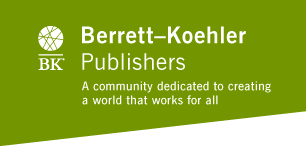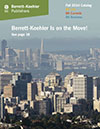The Seven Pause Practices
Based on extensive interviews and an analysis of a multitude of research and case studies, Kevin Cashman isolated Seven Pause Practices that support the Pause Principle: Step Back to Lead Forward.
1. Be On-Purpose
Purpose gives context, drive, and meaning to personal growth, talent growth, and growth of innovation. Purpose shakes the dust off of the everyday fabric of management, revealing the interwoven patterns of leadership, meaning and service. Purpose may be the most important, most far-reaching, transformative pause of all.
2. Question and Listen
Questions are the probing language of pause, forcing us to step back, reframe, re-vision, and reconsider. Listening is the receptive language of pause. In balance, questioning and listening create an incubator for growing clarity out of complexity; it is during the silent pause that the soul of transformative learning takes place.
3. Risk Experimentation
Leaders create the future through intelligent experimentation. As innovative leaders, we must have the confidence and self-trust to repeatedly risk failure, the courage and openness to absorb hard-earned learning, and the endurance to eventually break through.
4. Reflect and Synthesize
As leaders, we tend to over-analyze, under-reflect and under-synthesize. Great leaders take adequate time for analysis, reflection, and synthesizing to discover more forward-thinking solutions. The greater the complexity, the deeper the reflective pause required to convert the complex and ambiguous to the clear and meaningful. Pause helps us to move from the transactive to the transformative.
5. Consider Inside-Out and Outside-In Dynamics
Pause is a holistic, integrated process of considering dynamic forces within us and outside of us. The more we pause to consider both internal and external forces and information, the more potential personal insight, talent insight and strategic insight available.
6. Foster Generativity
A generative leader pauses to prepare the next generation, more than he or she pauses for personal success – fostering a rich atmosphere for human potential to flourish. The true measure of your leadership will not turn out to be your great achievements, but the number of great leaders you turn out.
7. Be Authentic
Managers build dependability through accuracy; leaders build credibility through authenticity. Pausing to be more authentic with ourselves, with our people and with what we aspire to create is critical to enduring value.
Adapted from THE PAUSE PRINCIPLE by Kevin Cashman, Berrett-Koehler, 2012.
For excerpt permission, please contact Cynthia Shannon at cshannon@bkpub.com
 0 items in cart
0 items in cart









